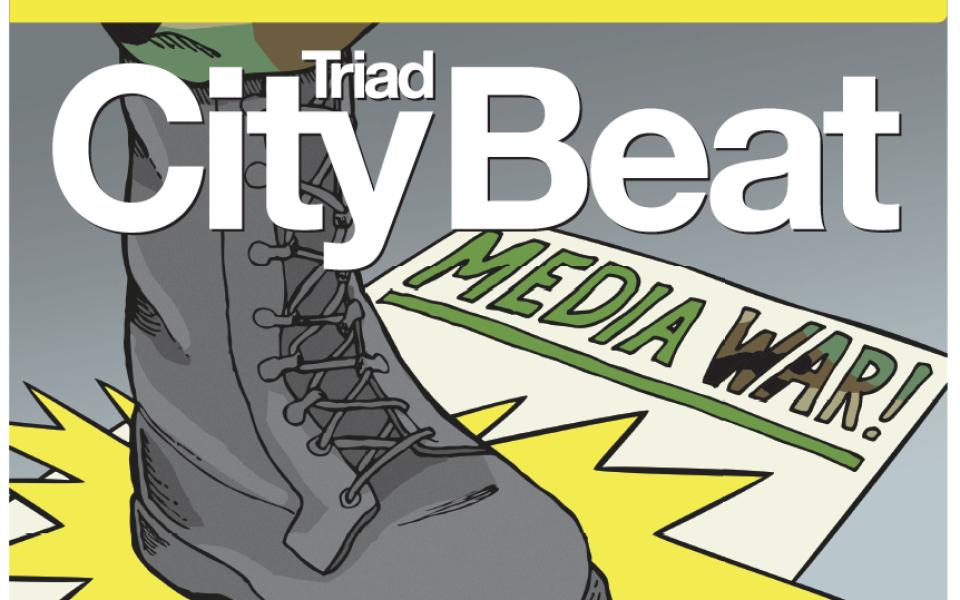
I’m writing this column on Monday, Feb. 21, just a few days before the date of Triad City Beat’s first issue in 2014 — which came out on Wednesday, Feb. 26 that year.
We have made 406 issues of this paper since that first edition, and if you’re reading this column I guess we came out with another one, which would make 408 in total.
There was a time, in the beginning, when I wasn’t always so sure the paper would make it to the streets. Those were the days when I’d look at the dwindling bank balance on a Monday morning, shrug my shoulders and make the next issue folder anyway. Behold: The folder would fill up with stories and photos no matter how much money we had, and sometimes — not always — the bank account would follow suit. I always managed to keep the printer paid, if not the entire staff in that first year.
Before we started Triad City Beat, I asked those who had come before me in the weekly newspaper game for advice. I wanted to know, specifically, where they went wrong. Stiffing the printer was at the top of the list, along with understaffing the sales department and overspending on office space and equipment.
In 1993, when I was working for SportsTicker in Jersey City, NJ, I attributed a home run to American League pitcher David Wells and sent it out over the wire.
I brought my own mistakes to the table as well, harvested throughout a career that began right around the time many of the people I work with were born. For example, in 1991 when I was still a student, I tried to write a news piece without doing any actual reporting. The next semester an editor at the New Orleans Times-Picayune alerted me to an attribution error in a story I wrote about that very newspaper; he said I was lucky it was him calling and not one of the Pic’s lawyers. And I was. Lucky, that is.
In 1993, when I was working for SportsTicker in Jersey City, NJ, I attributed a home run to American League pitcher David Wells and sent it out over the wire. That mistake made the company newsletter. In 1997, I showed up morning drunk at the Gambit offices looking to get paid for some freelance I had done. In 2001, in a piece for Our State, I killed a guy by assuming he was dead when his son took over the business. The son called me the day the story came out.
“Great story except for one thing,” he said. “Dad’s not dead.”
“You sure?” I asked.
As editor of Yes Weekly, my greatest failure was probably neglecting to cover the John Edwards trial in Greensboro. Sure, it was a media circus out there, but at the time we had a couple of fantastic reporters and I myself wrote an 800-word, weekly column; we could have owned it.
I’ve made plenty of mistakes at the helm of TCB. I took on too many tasks. I didn’t pivot fast enough from the newsroom to the business side. And I still won’t give up this column, which serves primarily to give me some small place to make sentences, and because if a week goes by without seeing my name in print I start to freak out.
All my mistakes have been borne of ego, carelessness, haste and fear. But if it weren’t for my mistakes, I might not have learned anything at all.
Now, eight years in at TCB, I’m still willing to make a few more.
Join the First Amendment Society, a membership that goes directly to funding TCB‘s newsroom.
We believe that reporting can save the world.
The TCB First Amendment Society recognizes the vital role of a free, unfettered press with a bundling of local experiences designed to build community, and unique engagements with our newsroom that will help you understand, and shape, local journalism’s critical role in uplifting the people in our cities.
All revenue goes directly into the newsroom as reporters’ salaries and freelance commissions.


Leave a Reply